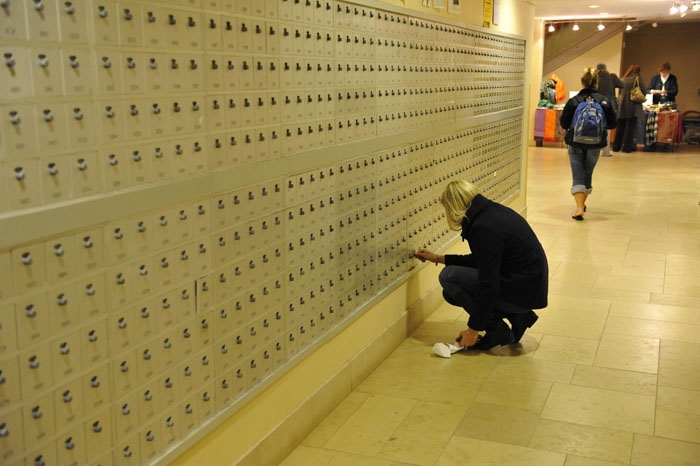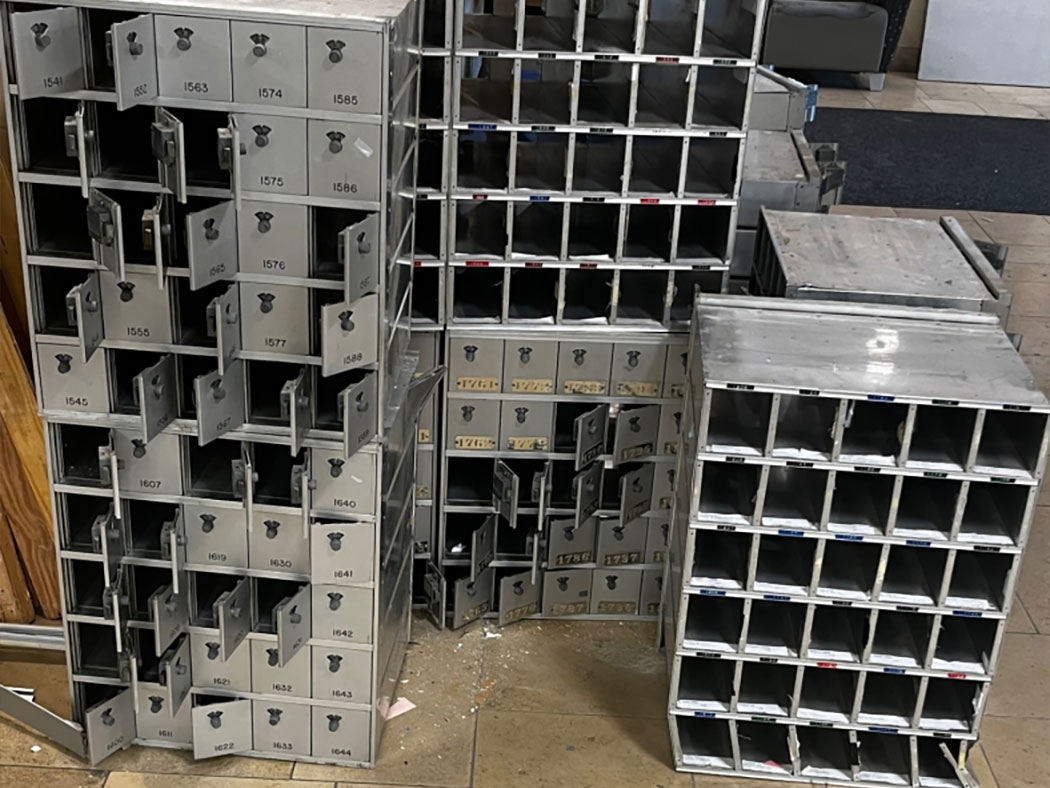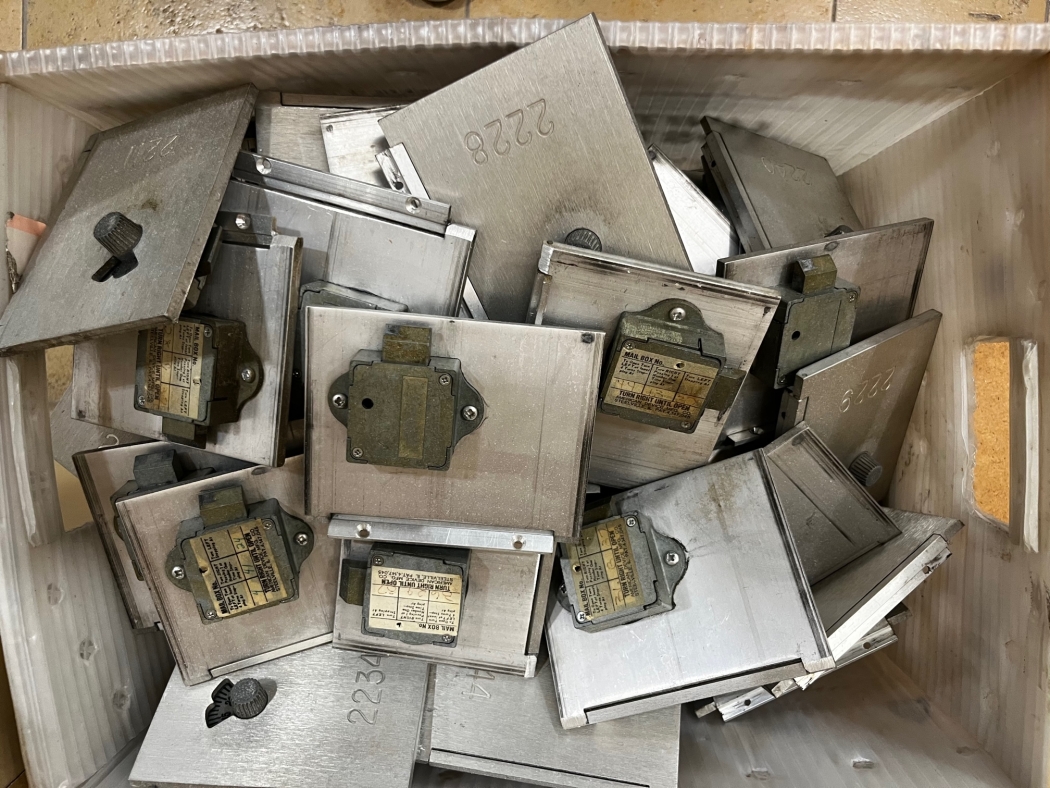Janice Thompson ’86 remembers the excitement she always felt as she headed over to the mail room in the campus center.
She couldn’t wait to open the weekly typewritten letters from her mom, updating her on family events. And when, as a senior, Thompson dropped her meal plan, her mom would also include $20 to cover groceries.
“It was a special day when we'd receive a little notice that we had a package waiting for us,” said Thompson.
Once a repository for letters from home, class schedules and campus event flyers, the student mailbox is becoming obsolete.
Nowadays, email, texts and social media have left many a mailbox lonely. Instead, campus mail rooms are inundated with oversized packages shipped from home, Amazon, Chegg.com and other online retailers.
As a result, a growing number of colleges and universities have eliminated the rows of mailboxes to free up much-needed space for the hundreds of packages delivered to campus daily.
This week, Union became the latest to focus on packages when workers from the Facilities Department began disassembling the 2,300 aluminum mailboxes in the Reamer Campus Center that have brought joy (and maybe a bill or two) to thousands of students over the decades. The campus center has hosted the mail room since 1975, except when it was temporarily relocated to the basement of Richmond House during a building renovation from 1985 to 1988.
“They had a good run,” said Paul DeBiase, the College’s manager of mailing and print services, of the mailboxes that lined several walls in Reamer. “But very few students used them anymore. We needed to do something to enhance the efficiency of our operation.”
According to DeBiase, the number of packages Union receives weekly has nearly tripled over the past 10 years, from 1,150 in 2014 to 3,350 in the 2023-24 academic year. A typical day may see more than 600 packages stacked floor to ceiling in the cramped mail room. They include everything from cases of bottled water, to textbooks to flat-screen televisions.
Odd items that arrived included a full set of tires, an oversized fish tank and even a stripper pole.
“We have seen it all,” said DeBiase, who has managed the mail room since 2000.
When they first arrived at Union, students were assigned a mailbox that they would keep for the next four years. If they received something that didn’t fit in the compact space or had a tracking number, they would be notified to come claim their mail.
Today that notification comes via email. And now that the mailboxes are headed to a local salvage yard, letters and other general mail will be added to the email notification about packages.
Work to remove the mailboxes led to a sentimental discovery: two greeting cards addressed to two separate students. Postmarked November 1976 with 13 cent stamps, the cards had apparently become trapped between the wall and the mailboxes. The cards were unsealed because the glue likely wore off after nearly 50 years.
One was a sympathy card addressed to Matthew Guilfoyle ’80. Guilfoyle’s father passed October 28, 1976, not long after Matthew arrived on campus. Guilfoyle said he was grateful the card was discovered and will be returned to him.
“What I remember about the mailboxes would be letters from my mother and meeting other students while we were getting our mail,” Guilfoyle said.
The other was a birthday card addressed to another member of the Class of 1980. The College has attempted to track down the student.
Current students don’t lament the loss of the physical mailboxes. Student Forum unanimously signed off on the plan to remove the mailboxes when it was presented to them earlier this year.
But for alumni like Thompson who attended Union in another era, the vanishing mailboxes evokes nostalgic feelings. In addition to getting letters from home, a trip to check one’s mail provided an opportunity to meet up with friends.
Thompson still remembers the combination of her mailbox, J-EF-D, nearly 40 years later.
“I had a friend in one of the fraternities who shared his combination with me, and we began to write notes to each other and drop them directly into the mailboxes without having to go to the post office,” she recalled. “I remember my combination because he started to use "JEFD" as a salutation, as in ‘Dear JEFD.’”
A career fundraising executive, Thompson, with a group of friends and neighbors, recently helped save a local newspaper, which is also kind of a relic from another era. Thompson now serves as the director of development and operations for the Harpswell Anchor in Maine.
“I'm sort of sad to hear that the physical mailboxes are being removed, although I totally understand the rationale,” she said.


